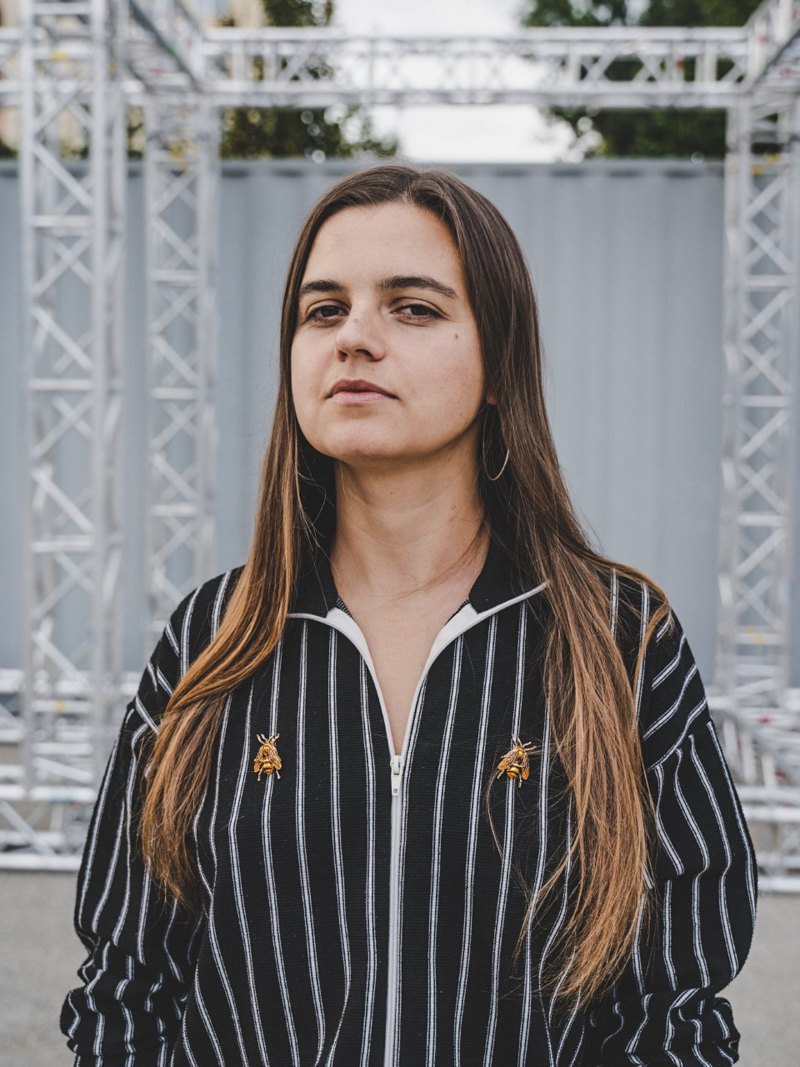
For many years, when I communicated with my colleagues from the artistic bubble in different countries about the continuity of Ukrainians' emancipation from Russian imperial influence, I encountered not so much disagreement or misunderstanding, but rather a kind of indescribable longing and regret. This unnamed intellectual laziness. How can it be: is it now necessary to learn everything all over again, to change the optics? To become ignorant for a while, to admit and sincerely say "I don't know"? It's very scary. I remember my fear ten years ago, when I had to study very quickly as an external student, to make room in myself for tonnes of new information to be processed. When you have a master's degree in art history and a doctorate in art history, you suddenly feel the toxic snag of Russification and have to tear out almost all your previous knowledge, to be left almost intellectually naked. When you have mechanisms and methodology, but no facts and no optics.
It's a very uncomfortable feeling. Yesterday you were an art critic, literary critic, curator, conductor, writer, historian, top-rated cultural critic, or journalist, or a renowned sociologist, and today you realise that everything you know is at least one-sided, at most it is simply not true. Imperialist, myth-making, outright lies. Post-imperialist optics, decolonising optics, tell you to listen, to learn new things. But learning new things takes time. And you are no longer a student or a schoolgirl. And time is not a week or a year. And the normal reaction of people with a scientific and artistic background is a reaction: "I won't do it!". And you decide not to worry too much. But this unpleasant little stone is already in your shoe. You keep walking, as you were, and the pebble distracts you, irritates you, and doesn't let you forget about it. But intellectual laziness overcomes discomfort. And you get used to the news of daily deaths and destruction, stop paying attention to calls for help, and return to your usual rhythms and previous intellectual connections.
I recently had a conversation with a friend who has lived in Germany for many years. She speaks German well, is an intellectual, translator, art critic and writer. In other words, she is a deeply embedded person (as much as possible, given that German society is not very happy with the deep embedding of representatives of other societies, although it does not even admit it to itself). So, we had a fairly frank conversation, and in it, a phrase was uttered that was not a discovery for me, and which I often think of as a concept for a future historical explanation of the reasons for the duration and bloody nature of this ten-year war. And this thought is probably the only reason to continue writing such texts. German intellectuals do not trust Ukrainian intellectuals.
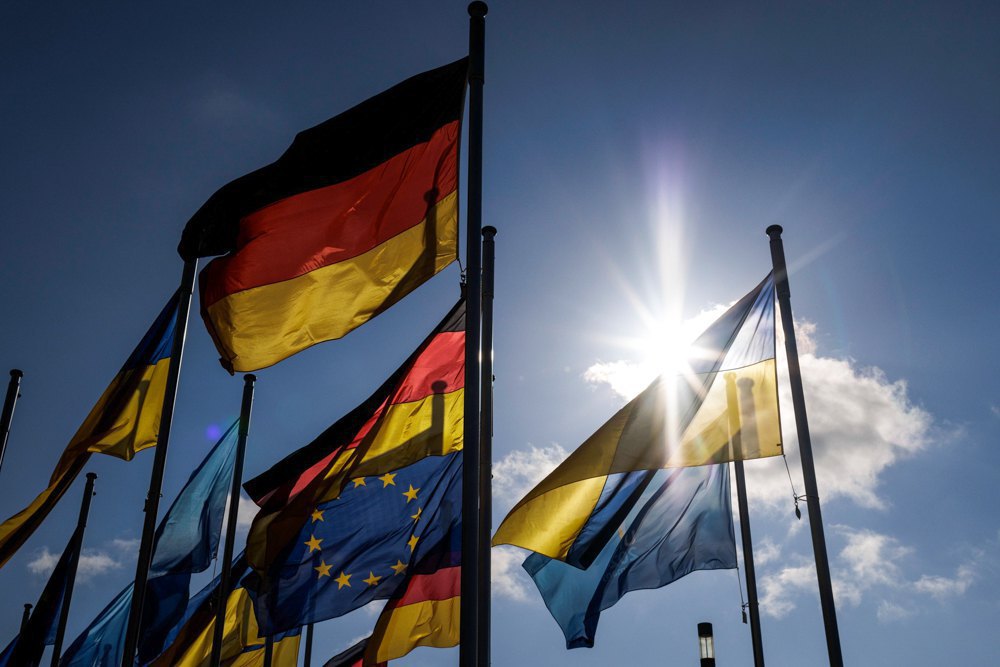
This lack of a view of equality is obviously based on the imperialist past, on harmonisation with a latent chauvinistic gigantism (lost to the Germans and not lost to the Russians), on habits, on a long-established Eurocentric view, on a great fear of a repeat of the World War, on a great fear of a repeat of reparations, on a fear of deconstruction and a new loss of the appearance of stability. And of course, subconsciously, they resist granting the right to subjectivity to cultures colonised in the past. Almost all projects listed as international, involving experts from all over the world, have this involvement only at the level of demonstration. But when it comes to changing optics, proposing new rules, it is only allowed for their own.
This absence of a conversation as an equal with an equal is based on the deep conviction that societies and individuals who go through traumatic experiences (and we certainly do) cannot calmly, carefully, and therefore subjectively analyse and describe reality, that it will always be reality described from the position of pain, from the position of the victim. Obviously, I would like to call these primitive conclusions false, immature, apologise for the accusations of hidden chauvinism, and again crawl into a corner of a peripheral culture that is not of global scale, so as not to disturb adult, developed, respectable cultures with my traumas. We also talked about these sarcastic thoughts in a conversation with my friend. And I noticed that the closer you are to the front line, the more frank the conversations become. And you escape from anger and pain either with tears or irony. But I wanted to show compassion.
I have great sympathy for German and similar societies because their fear and their deep traumas of the previous century have paralysed their ability to see the positive possibilities of turbulent change, and their love of stability has led to an atrophy of empathy.
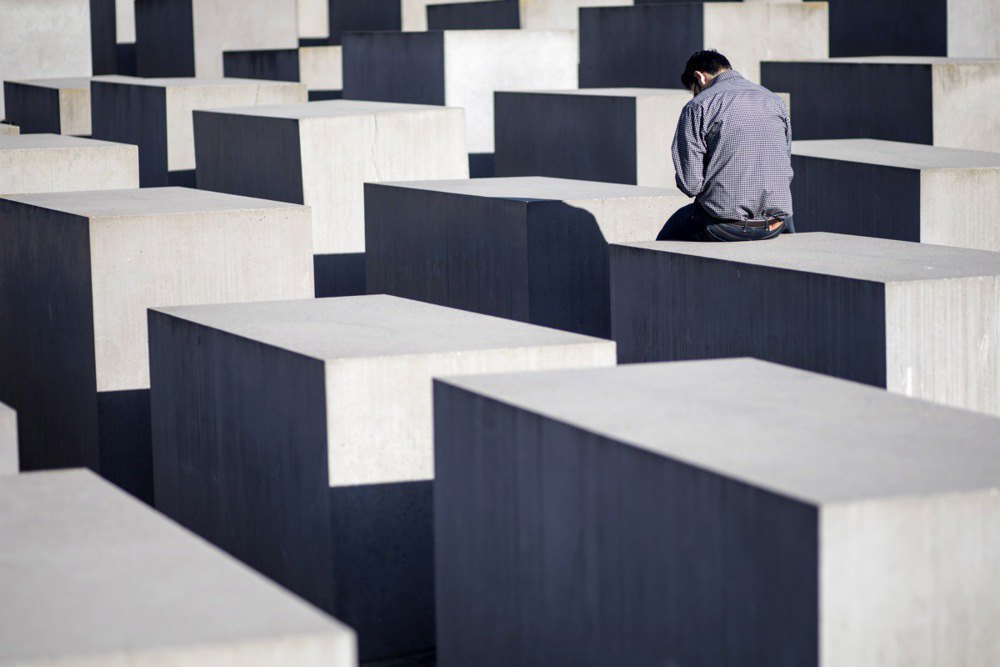
The belief that a long-established picture of the world, explained to oneself and to others, is the only possible one, that it is unshakable, actually demonstrates the depth of trauma in such a society. Anything that doesn't move rusts, and this dogma doesn't require much discussion. In a huge number of issues, German society is very active, listens and creates new narratives, it is multilevel and transient. But the issue of Ukrainian culture, the self-sufficiency of its philosophical and artistic thought, has formed an insurmountable crust for Germans. Humanity is only now on the verge of realising that it is the responsibility of old empires to study the languages and cultures of countries on the periphery. And not vice versa, when individual representatives of these peripheral countries, lacking a political lobby (which empires usually have), must try to shout their narratives with individual voices to those who will indulgently incline their ears for a few minutes. When an occupation genocide takes place, these individual voices, out of desperation and pain, become rebellious. And this is considered uncivilised, so such voices are quickly put on reserve.
Such a perspective means that we are perceived as a rebellious adolescent nation; but this is not true - the antiquity, depth, and versatility of Ukrainian philosophical thought and state-building mechanisms prove the opposite.
Our statehood was constantly silenced, systematically destroyed by famines, camps, executions, exile, hard labour, and rape. By the way, these methods were used by the Russians against all the neighbouring enslaved peoples, which are now called the so-called "subjects of the federation". Their method is to intimidate, close them down, announce to the whole world that there are some small, insignificant people creating an insignificant primitive culture that should not be paid attention to. This is typical, well-known hierarchical chauvinism. We see it, we know why monuments to Pushkin have been erected in our towns and villages for centuries, why the sheet music of composers who refused to be "Soviet actors" was burned, why those who, like Gogol, accepted Russian identity and refused to give up their own had a chance to be untortured and even become famous.
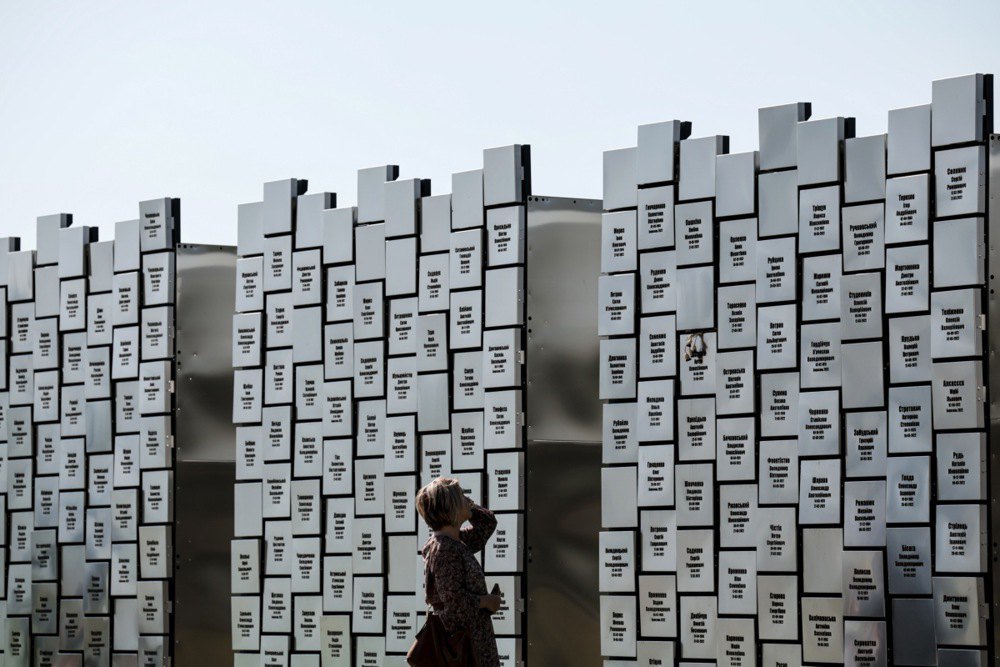
This is a good time to remind us once again that our struggle is based on ideological and political identity, not ethnicity. Unfortunately, the West is also too lazy to study and understand this; they are simply afraid, vomiting up the word "nation" based on the trauma of their own experience. The Russians are now waging a genocidal war, destroying us precisely because of our political national identity: our literature, museums, galleries, language, state signs. First and foremost, our poets and teachers are being killed in the occupied territories, regardless of their ethnicity. On the one hand, we are defending ourselves against Russians ten times stronger, more cunning and insidious, and on the other hand, we have to constantly justify ourselves here in Europe. We have to tell the history of the twentieth century, as in elementary school, with a map in hand, a subjective history that is not distorted by Moscow's propaganda. We have to explain once again that our political nationalism is simultaneously a little bit Ukrainian, a little bit Crimean Tatar, a little bit Roma, a little bit Greek, a little bit Jewish, a little bit Karaite, a little bit Georgian, a little bit Polish, a little bit Crimean, a little bit Armenian, a little bit Gagauz, a little bit Bulgarian, a little bit Moldovan, a little bit Lithuanian, a little bit Ichkerian, a little bit Azerbaijani, a little bit Vietnamese. It has as its foundation the flexible self-determination of a conscious civil society and a courageous volunteer movement, not ethnicity.
As I write this, I ask myself the question: why write a text knowing in advance that reading it will be an act of hierarchical condescension? It's a decent, dignified listening to the "victim" on the level where healthy, non-toxic societies learn to respect the needs of children, to listen to their requests for expression, but subconsciously understand that this is not a conversation between an equal and an equal. While working in Germany, I often felt this kind of bored condescension from my interlocutors. Eyes wide open, attentiveness, time allocated, and listening: normalised, dry, intellectual listening without listening and without being taken in, without a loop. They listened because it was a manifestation of good manners, a demonstration of education and modernity, behind which there was a reaction that was completely irrelevant to reality.
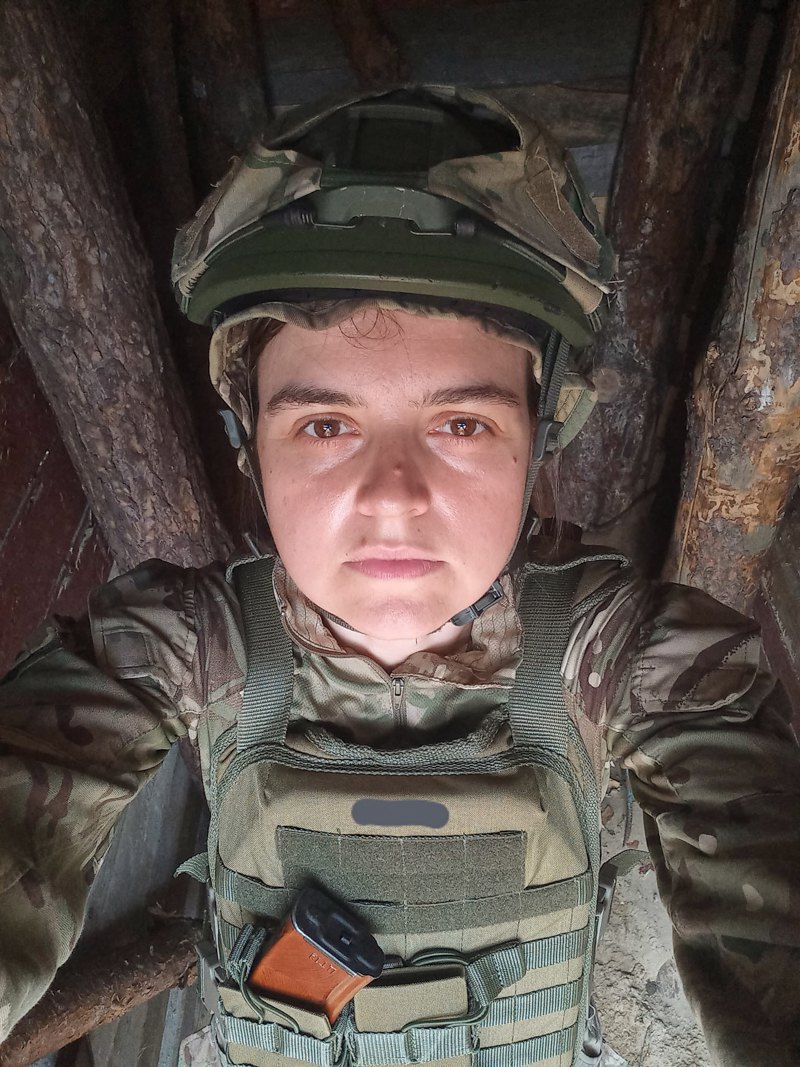
I'll give an example of foreign instructors to reflect this side of postcolonialism. When a specialist in our army conducts training, it is obvious that everything works on authority, on the ability to present the material, to keep the audience's attention. But as soon as a foreign trainer appears, everyone seems to tighten up a bit, listen, and go to the toilet and take a smoke break less often. That is, this inferiority complex works in such a way that it doesn't matter what this person says - attention is concentrated because they speak a foreign language and are translated. Of course, when we start talking about this among ourselves, everyone denies it, but transgenerational trauma leaves atavistic behavioural reflexes in enslaved peoples. And the opposite is true for the people who enslaved us: if a person speaks their language poorly or has little knowledge of their culture, they listen to him or her inattentively or ignore him or her. It seems like a simple mechanism, but it is still reluctantly noticed by both the former and the latter.
I have often observed similar examples. When some unknown directors from Europe came to Ukraine to stage performances, more people came to see them, and the media paid more attention to them. The play could be of poor quality, uninteresting, but because it was staged by a foreigner, it was considered to deserve more time, and doubts about its quality were more likely to be explained by our "inability to watch contemporary art". This was obviously true of directors from Russia, Germany, France, and Britain, and obviously less true of directors from Greece or Slovenia, and almost never true of directors from Kazakhstan or Georgia. And this, unfortunately, is not a paradox, but a very clear, unacknowledged reality that all postcolonial societies face. But it also works in the opposite direction - even if a society declares an internal decolonial policy.
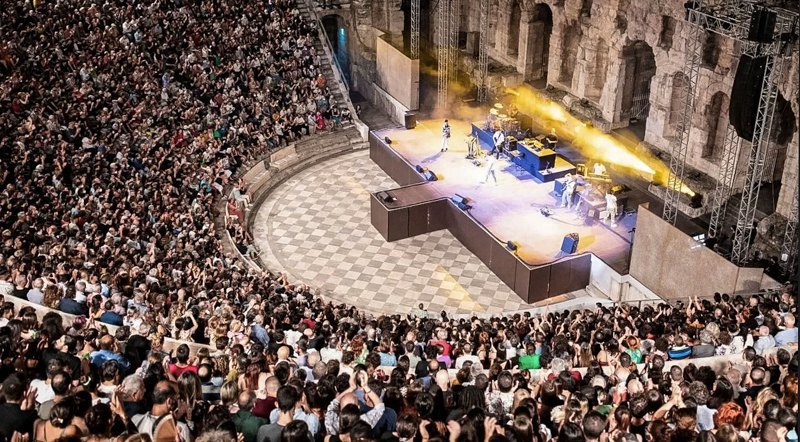
A wonderful example from last summer: at the Athens Epidaurus Festival, one of the discussions was devoted to the modern reading of ancient texts, their interpretation, their understanding. And the guests from Britain and Germany spoke about this most of all (traditionally, at international art festivals, guests from Britain and Germany, if they are present, speak the most). We sat together as a small curatorial group of young people from Sakartvelo, Ukraine, Finland, Albania, and tried to signal with short comments that it would be incredibly interesting to hear the opinion of Greek artists about contemporary Greek theatre, which continues to work with ancient texts, because that's why we came here. We tried to hint to our British and German colleagues that perhaps they would also be interested in the point of view of peripheral countries (of which we were representatives) or to listen to a dialogue between Greek artists and artists from peripheral countries, which they hardly ever hear. And, as you can imagine, it's not about ethnicity again, but about worldview identity. I was incredibly interested in what a Finnish specialist, a Georgian theatre expert thinks about this; it was interesting to discover in backstage conversations that Greeks do not know that Mariupol was once a completely Greek city, that there are Greek settlements and Greek schools in the eastern part of Ukraine, that my family from Bessarabia also has Greek roots and we have a lot in common, but this commonality did not have a chance to meet often in art because our self-sufficiency was suppressed by empires.
I know and respect the decolonising journey that museums in Europe have embarked on, but being physically present in Athens' Acropolis Museum the day after the discussion took away any desire to hear what a British or German expert had to say about art. Of course, these are only temporary emotions, and we all want to live in a balanced world where all voices are represented. But I don't consider emotions to be evil. They are part of an adequate, living, natural response to pain and injustice.
During my year and a half in Berlin, I was unable to calmly enter almost any local history museum on Museum Island, which still has the original stolen artefacts. I just felt somehow uncomfortable. I remember a similar feeling when I entered the Hermitage back in 2010 and saw hundreds of paintings and artefacts by Ukrainian artists. I asked the guide why they were here and not in Ukraine, and received an answer: "What a strange question, girl?".
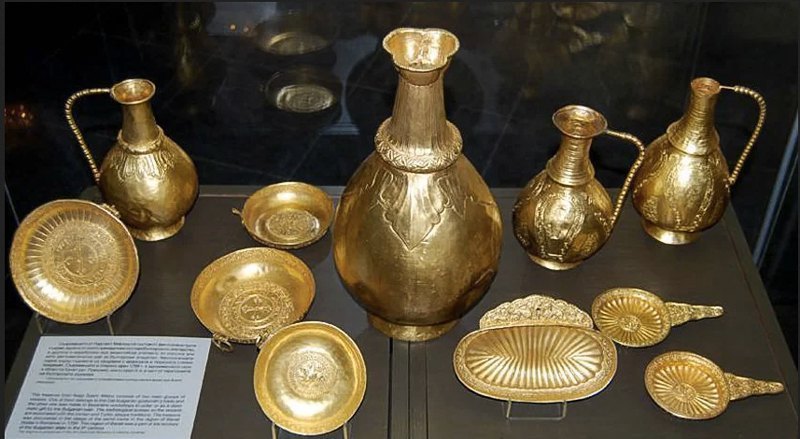
And so we walked around the Athens Museum with our peripheral group of young people, silent, sometimes whispering to each other: "This is the poorest museum I have ever seen in my life," "It's a museum of forced emptiness." This museum was poorer even than the Ukrainian ones, because Ukrainian museums, like Greek ones, were looted, including by the Vatican and the Germans, but mostly, obviously, by the Russians. But we still managed to get something back, to restore something about our history - of course, until the occupation began 10 years ago. In the occupied territories, the Russians stole absolutely everything from our museums. Everything they couldn't steal, they burned and destroyed. There, in Athens, we all asked our lady guide in a circle where the originals of this or that artefact were now. And every time the lady guide looked down and answered with a tight smile, calmly: "Well, unfortunately, we don't know when exactly it will return to us, but it's there, in the British Museum or in the Antikensammlung Berlin, or in The Historical Archive of the Vatican Museums.” How well I know the tension in every muscle of that smile on the lady guide's face, which hides restrained anger, resentment, submission, disobedience, confusion, emptiness, hope, hopelessness, self-control and self-censorship. It is a bouquet of emotions that opens like a fragrant spring lilac in the pause between swallowing saliva to push through this transgenerational ball of injustice with a further response.
This bouquet of feelings always arises in the pause before answering all the stupid questions about what is wrong with Dostoevskiy and what is Tchaykovsky's fault, he lived before Putin and Stalin, and in general his family descends from a Ukrainian Cossack family. And every time you have to swallow it down, push that damn lump down your spine, before you put on a condescending smile and start looking in circles again and again for the words that explain the mechanism of the merciless millet of Russian propaganda, which has always used art as a weapon. It marks all territories with convenient labels, tramples, tortures and destroys all those who are unprofitable and inconvenient. And it's not about the artist's personality, it's about how the empire used him for its own purposes. And Russia uses all artists for its own purposes, even those who think they are against the regime. But to realise this, you need to make too many moves, you need to admit your ignorance, your false optics, and work hard. Intellectual indolence is exactly what the empire is counting on, always. That's why it likes to award orders and certificates, hold dinner parties, assemble large opera halls, hold long and lavish meetings in European countries after Russian prime ministers, including those famously ‘good’ ones, and drink prosecco, always drink prosecco during breaks, prosecco and now Fritz-Kola.
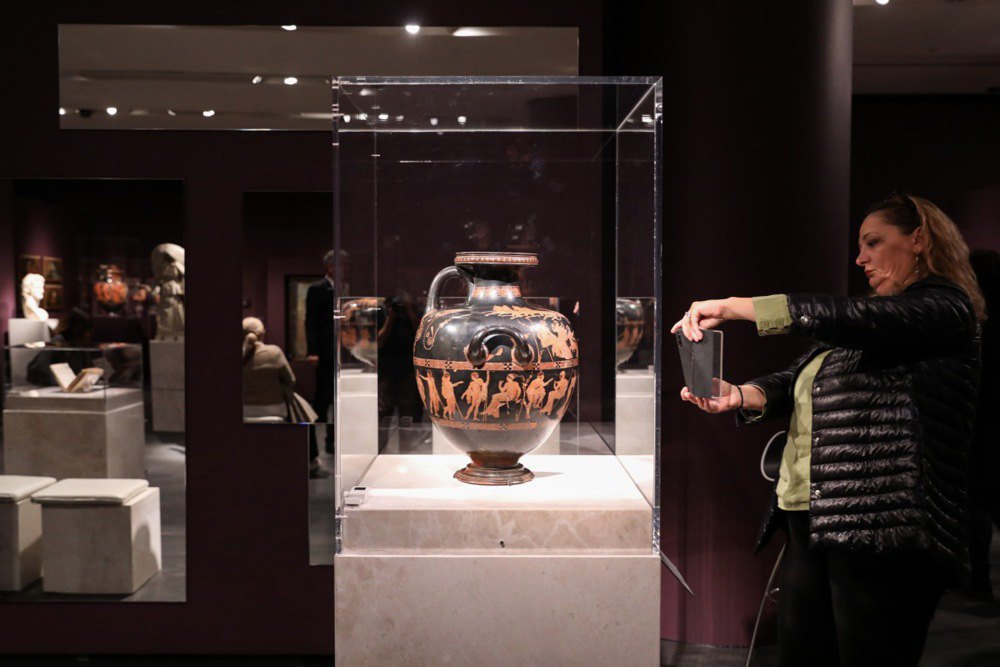
Everything around us is literally infected with Russian narratives. The inferiority complex can still be easily observed when societies that were colonised in the past still have an atavistic echo of listening to their "masters", even if they say things that are not very clever. But it also works the other way around. Past "masters" (those with the experience of empires, including Germany) think that they think best, know the most, have the most to say, and can occupy more space. To occupy "by right" - well, there is indeed this intellectual continuity, isn't there? And until the former colonising masters realise their own responsibility for Russia's decade-long war against Ukraine and take the trouble to move, the inequality of this debate will continue.
Yes, the most important thing is weapons to protect people from the Russians, but it is also high time to make space for the unheard. Both Germans and the liberal Russians who have flooded Berlin need to understand that they need to move over, to make room for the voices of Kazakh, Georgian, Crimean Tatar, Ichkerian, Moldovan, Ukrainian, Lithuanian intellectuals who will describe their optics, a new and unexpected optic for Europe, that of the enslaved and those who are fighting against an empire that calls itself a federation. But now the focus is on Europe's biggest war, which is tearing up Ukrainian land and killing Ukrainian citizens while the whole world watches online.
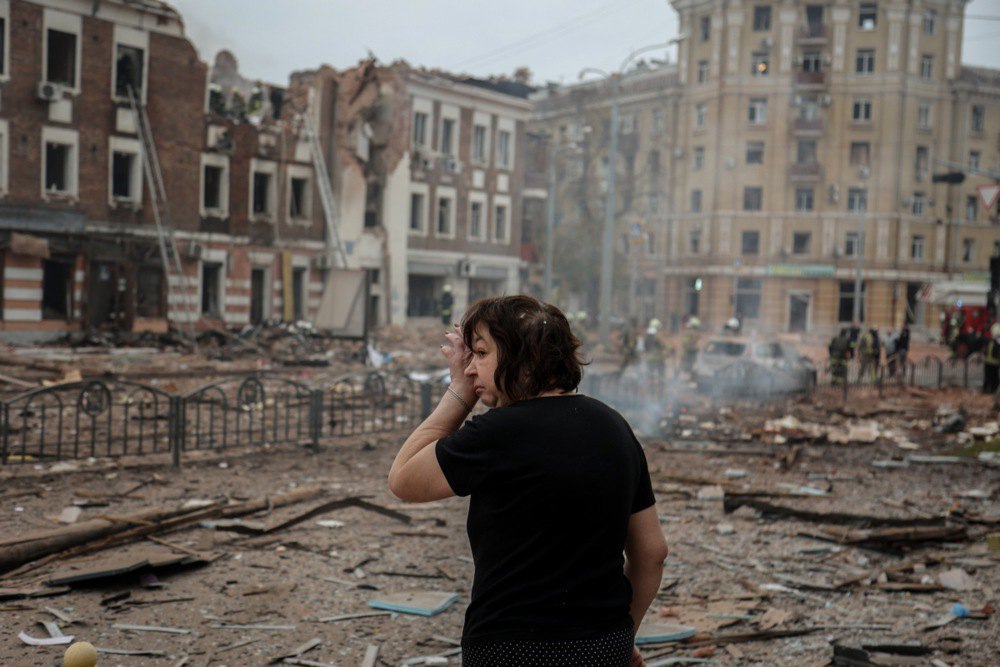
These voices need to be listened to carefully, not from the perspective of someone who is tired of "nervously unbalanced traumatised refugees". We need to learn to see decent people who were able to say no to the abuser and the terrorist. Because if this war was allowed to happen, if so much evil happened in front of Europeans in the first 8 years of the war (which was called not a war but, cowardly, a "conflict"), it means that the usual narratives do not work. If they do not work, what should be done? We need to revise them. To revise them, we need to distance ourselves. To distance myself, I need to understand where I am distancing myself, what I am distancing myself from. I am distancing myself from my beliefs. If I distance myself from my beliefs, free up space, and am ready to listen, ready to admit that some of my narratives are irrelevant, inadequate, only then what the other side says will have a chance of being subjective.
But until this happens, writing such texts may not make sense. Because mostly such texts are read by those who are ready to behave like an older parent towards a child who cries because of a broken knee, and not as a partner in a discussion around a narrative, giving the partner the right to speak in advance, the right to know more, to be higher and wiser, realising that my own narratives may be irrelevant, that I cannot know everything.
There should have been some warm paragraph about how it's not all bad, and in fact there are many adequate spaces for equal discussion. But at that moment, the electricity was cut off again because the Russians destroyed almost all civilian power in the largest country in Europe. And in the darkness, it is better to find understanding with those who speak directly, are not afraid to admit mistakes and are ready to stand up to genocidal tyranny. And you don't want to write a good text in the dark, on an almost dead phone. And this is not about emotional trauma, but about reality.
We live in a foggy plasma of daily unprecedented cruelty, where the horizon is so low that it is a privilege to see the prospect of the future for a week. I would just like to wish us to become more sensitive and honest - it irritates empires. Although this advice is only effective if you are ready to face a ferocious beast, including yourself.
***
Olena Apchel is currently serving in the UAV unit of the 4th Operational Brigade of the Rubizh National Guard. You can join the collection for a car for Olena's unit here.








